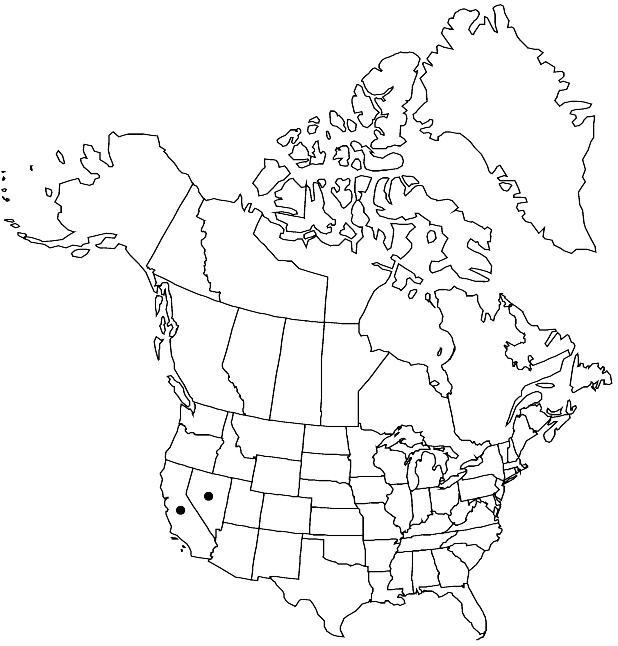Boechera rigidissima
Novon 13: 389. 2003.
Perennials; long-lived; apomictic; caudex woody. Stems usually 1 per caudex branch, arising from center of rosette, slightly elevated on woody base or from near ground surface, 2–6 dm, pubescent proximally, trichomes usually subsessile, 2- or 3-rayed, rarely simple, 0.25–0.4 mm, glabrous distally. Basal leaves: blade oblanceolate, 2–6 mm wide, margins entire, ciliate proximally, trichomes to 0.7 mm, surfaces sparsely pubescent, trichomes subsessile to short-stalked, 2–5-rayed, 0.1–0.4 mm. Cauline leaves: 5–10, rarely concealing stem proximally; blade auricles 0.5–2 mm, surfaces of distalmost leaves glabrous. Racemes 5–16-flowered, usually unbranched. Fruiting pedicels divaricate-ascending, straight, 4–10 mm, glabrous. Flowers ascending at anthesis; sepals glabrous; petals purple, 6–8 × 1.5–2 mm, glabrous; pollen spheroid. Fruits divaricate-ascending, not appressed to rachis, not secund, straight, edges somewhat undulate (not parallel), 4–6.5(–7.6) cm × 2.5–3.5 mm; valves glabrous; ovules 24–54 per ovary; style 0.2–0.8 mm. Seeds uniseriate, 2.5–3.2 × 1.8–2.5 mm; wing distal, 0.3–1 mm wide.
Phenology: Flowering Jul–Aug.
Habitat: Rocky places in open conifer forests
Elevation: 1800-2000 m
Discussion
Of conservation concern.
Plants assigned to Boechera rigidissima appear to represent a series of apomictic hybrids, possibly involving B. stricta and B. suffrutescens. The two varieties recognized by Rollins are well isolated geographically (in Trinity County, California, and Washoe County, Nevada, respectively) and show enough morphological divergence to suggest that they represent distinct origins, if not different combinations of parental genomes.
Selected References
None.
